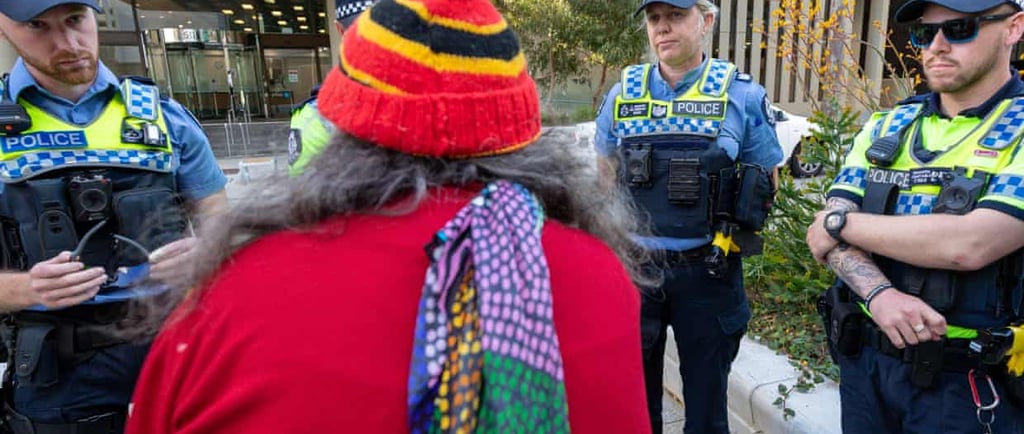When De-Escalation Fails: Lessons from JC’s Death and the Call for Systemic Reform
A coroner’s recent findings in Western Australia reveal that police made insufficient efforts to de-escalate before fatally shooting a 29-year-old Aboriginal woman. This article examines what went wrong, what the inquiry revealed, and what must change to restore trust and safety.
PEOPLE & COMMUNITY


From the moment police arrived on that quiet Geraldton street in September 2019, time seemed to contract. Less than a minute passed before a gun was drawn. Within 17 seconds of stepping out of his patrol vehicle Senior Constable Brent Wyndham fired a single, fatal shot at JC. The coroner’s inquest now confirms what many had suspected: that meaningful attempts at de-escalation were not made, and that JC’s death was preventable.
When authority meets crisis without pause for context, history, or humanity the result is often tragedy. This case forces Australia to reckon with how law enforcement responds to mental distress, Indigenous vulnerability, and life’s unfixable fractures.
What the Inquest Exposed
The coroner, Ros Fogliani, found that Western Australia Police lacked adequate training for this type of encounter. Officers on the scene missed opportunities to communicate with JC, to slow the approach, and to calibrate their response when a person clearly in distress held a knife and scissors. NIT+3ABC+3The Guardian+3
JC had recently been released from prison. She had spent most of the weeks prior involuntarily in a mental health facility. The inquest revealed that she had underlying mental health conditions, that her social supports were fractured, and that she was vulnerable in many senses. ABC+2NIT+2
When police arrived, two officers were already attempting to engage her verbally. But within seconds another officer exited the vehicle, moved toward her and discharged his firearm. There was no negotiation. No time to consider alternative tactics. No visible priority on calming or de-escalating the scene. NIT+2ABC+2
The official verdict was that her death was a lawful homicide. But the coroner emphasised preventability. In her words, “WA Police missed opportunities to effectively train the attending police officers,” and “there were missed opportunities to communicate, which may have avoided JC being approached so quickly.” ABC+2The Guardian+2
—
Why It Matters: Trust, Culture, Systemic Gaps
The ripples from this case extend far beyond one street in Geraldton. For many Aboriginal people, interactions with police are embedded in a legacy of trauma, neglect, and surveillance. When enforcement fails to pause long enough to see the person in front of them, to ask what mental state they are in or whether they feel supported or isolated, they deepen a chasm of mistrust. JC’s family and community express that sense of being seen only when danger is assumed. The Guardian+1
This case also exposes systemic gaps: mental health services that fail to follow through, health and policing systems that do not communicate, training modules that do not prepare officers for the real complexity of crises involving mental states, culture, and safety. ABC+2NIT+2
Furthermore, the inquest highlights how fleeting those moments of decision are. How fast escalation can happen. How decisions to use force can occur before communication, before understanding, before acknowledgement of context. That does not excuse deadly action—it demands that systems be built to slow decision-making, to require checks, to expect empathy.
What Has Been Recommended—and What Must Follow
Coroner Fogliani made nine recommendations arising from the inquest. Among them: establish within WA Police a dedicated branch for improving relationships with Aboriginal communities; regular, co-designed cultural awareness training; review of use-of-force protocols; better information sharing between health services and police when someone is known to be vulnerable; and that mental health practitioners be able to support police responses in the field. ABC+2The Guardian+2
JC’s family has expressed that the findings bring some measure of closure, though not peace. They emphasise that recognition of failure is only the first step. What matters now is that recommendations are implemented fully, transparently, and with community oversight. ABC+1
An Urgent Takeaway for Justice, Safety, and Respect
At TMFS we believe that public safety must be anchored in justice not just power. Every community deserves an expectation that crisis will be met with calm, not force; that mental distress will elicit care, not bullets; that Indigenous lives are not background to policy failures.
This case forces us to ask: what kind of police force do we want? One that acts fast, or one that acts wisely? One that assumes threat, or one that seeks to understand danger?
JC’s shooting should not become another story that fades. It must be a turning point. The recommendations of the coroner must be more than words on paper. They must be commitments to change training, accountability, culture. They must be heard in remote towns, in regional stations, in command centres.
To policy makers, law enforcement leadership, health service providers, and community advocates: this is our moment of responsibility. Let us act so that no other life is lost for the failure to de-escalate.
All rights belong to their respective owners. This article contains references and insights based on publicly available information and sources. We do not claim ownership over any third-party content mentioned.


